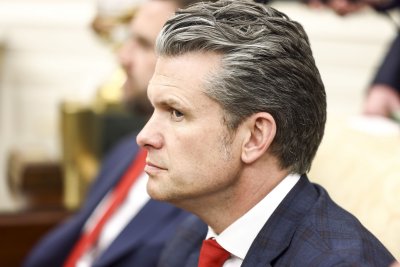
May 24 (UPI) — Secretary of Defense Pete Hegseth is further restricting media access to areas of the Pentagon, as he seeks to cut down on unsanctioned leaks of military information.
“Updated security measures for resident and visiting press are needed to reduce the opportunities for in-person inadvertent and unauthorized disclosures,” Hegseth said in a memo issued earlier this week.
Reporters will now be required to have an official escort with them in more areas of the Pentagon, including the hallway where Hegseth’s office is located.
“They [media] are required to be formally escorted to and from those respective offices,” the memo reads.
Journalists in the Pentagon will also be required to sign a pledge to protect “sensitive information.”
Reporters may not move freely inside the Defense Department headquarters “without an official approval and escort from the Office of the Assistant to the Secretary of Defense for Public Affairs.” That role currently belongs to Hegseth’s assistant for public affairs and senior advisor, Sean Parnell.
Parnell earlier in the week was tasked with leading a panel conducting a “comprehensive review” of the United States’ withdrawal from Afghanistan.
Hegseth has taken aim at the media following a series of Defense Department leaks and missteps.
In March, the Defense Secretary came under fire for accidentally adding a journalist to a Signal chat, sharing classified information about U.S. bombings of Houthi rebels in Yemen.
Defense Department officials were later successively put on leave in April, including deputy chief of staff Darin Selnick. Chief of staff to Deputy U.S. Defense Secretary Colin Carroll was put on administrative leave at the same time.
A fourth official was implicated in the leak and reassigned days later.
Later that month, Hegseth was found to have reportedly shared classified military information in a separate Signal chat.
“While the Department remains committed to transparency, the Department is equally obligated to protect CNSI (classified national intelligence information) and sensitive information — the unauthorized disclosure of which could put the lives of U.S. Service members in danger,” Hegseth wrote in the memo.
The Defense Secretary said the “updated security measures” are necessary “to reduce the opportunities for in-person inadvertent and unauthorized disclosures.”